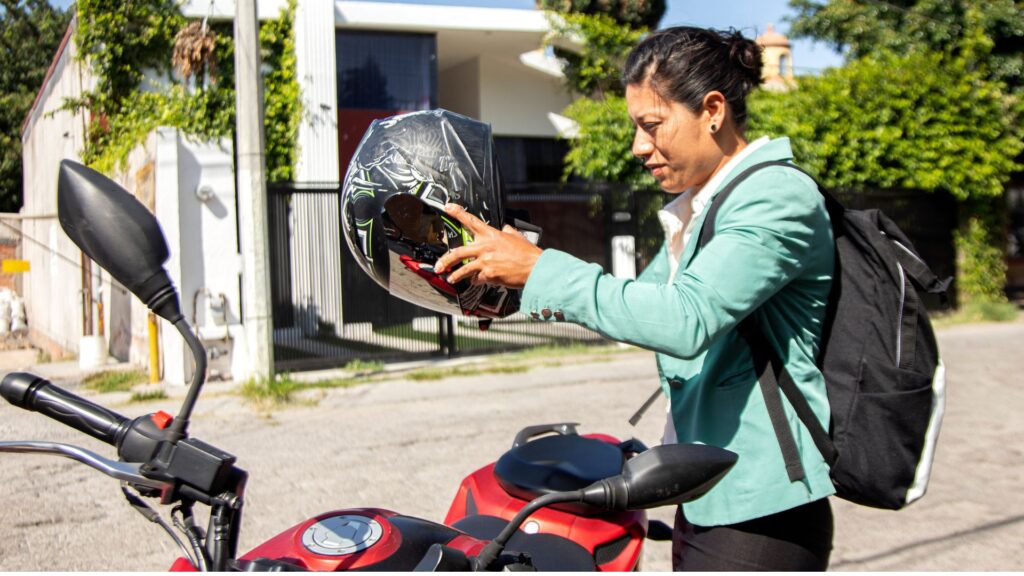

- Moto-hailing services save commuters more than 100 hours of travel time per year.
- Over 65% of drivers report increased earnings of up to 40% compared to previous activities.
- Ride-hailing moto reduces commuting costs by up to $2.8 billion per city annually.
- 88% of Bogotá users have high levels of confidence around the safety of ride-hailing moto, including 90% of female passengers.
19 September 2024 – A new report released today reveals the transformative socioeconomic impact of moto-hailing services across major Latin American cities. The research, conducted by Access Partnership and commissioned by the mobility technology platform DiDi, illustrates how these options help reduce costs, boost income, and improve efficiency and safety in urban mobility.
The report, ‘Empowering Mobility Through Technology: Moto-Hailing for Safer and More Equitable Latin American Communities’, focuses on cities with moto-hailing operations, such as Bogotá and Rio de Janeiro, as well as those without, such as Mexico City and São Paulo.
Urban mobility is crucial for socioeconomic advancement, enabling individuals to access job markets, education, healthcare, and essential services. However, many cities in Latin America face challenges related to congestion, high commuting costs, and limited transportation options. Moto-hailing services – digital platforms that connect passengers with motorbike drivers – are emerging as solutions and alternatives to these issues. The findings highlight benefits across three key areas:
- Cost and time reduction and increased economic gains for passengers: In Rio de Janeiro, passengers saved 105 hours and up to $4,000 USD annually, representing 20% of the average annual household income. Additionally, over 60% of trips were to or from low- and middle-income areas, underscoring moto-hailing’s role in increasing mobility for underserved populations. In Bogotá, annual savings from reduced commuting times (up to 109 hours) were estimated to be $2.8 billion USD, equivalent to over 3% of the city’s GDP in 2023.
- Flexible and reliable income opportunities for drivers: Over 60% of drivers on platforms like Didi are the sole income earners for their households. The flexibility of working hours enables drivers to balance personal and professional commitments while maximising their earnings, with over 65% of DiDi moto-hailing drivers seeing up to 40% increase in income.
- Addressing safety concerns: According to this research, 53% of both Bogotá and Rio de Janeiro users believe that DiDi Moto services are equally or more safe than alternative means of transportation.
The research also highlights the potential of expanding moto-hailing services into new markets, with 68% of respondents in Mexico City and 59% in São Paulo expressing a strong interest in using moto-hailing services. In both cities, the introduction of such services could generate new economic opportunities for up to 20,000 moto drivers in each city, providing additional income opportunities for drivers and further reducing commuting costs for users.
Geusseppe Gonzalez, Access Partnership’s Head of LATAM, said: “Moto-hailing services are well-established in other parts of the world, where it has become a critical tool for promoting economic inclusivity and reducing inequality. This is now taking hold in some of Latin America’s biggest cities. We will continue to see the demand for these services increase, as the mobility landscape evolves and people see the positive impact it can have in their daily lives.”
The report is available for download here.
Media contacts
About Access Partnership
Access Partnership makes innovation work for the world. Guiding businesses and governments through complex regulatory challenges, it designs frameworks that optimise deployment, drive growth, and attract investment. Access Partnership delivers in over 200 markets worldwide through specialist knowledge across all areas of the digital economy. From setting strategy and designing policy to ensuring compliance and measuring success, it expertly advises every step of the regulatory journey. Find out more here: accesspartnership.com.